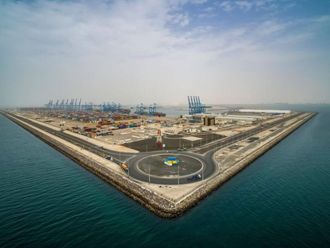Natural gas is slowly and inexorably changing the fuel and feedstock paradigm around the globe and China, following on the heels of the United States, may tip the scales any time. The space to watch out for is the development of shale gas and the way China handles this new sector - from technology to trade.
In a significant move this week, the Shanghai Petroleum Exchange launched its new spot market for natural gas - making this the first time China has adjusted domestic gas demand and supply through the markets during peak power consumption period. The debut of this seasonal natural gas exchange is a crucial step toward liberalizing domestic natural gas prices, a highly contentious subject between the oil companies and the government.
New energy issues have caused ripples on the China market, of late. The upcoming launch of a shale gas tender in July sent shares of shale gas developers up last week, lifting the oil sector by 4.7 percent despite a falling of the overall Shanghai Index. More than 70 companies, one-third of them private, have evinced interest in the auction, generating optimism that China will be seriously tapping its vast shale gas reserves to ease its perpetual energy shortage.
New energy, new experiment
Shale gas - an unconventional type of natural gas formed by gas trapped within shale formations - is a high-efficiency energy resource of which China has huge reserves. The reserves are estimated at 31 trillion cubic meters, equivalent to the total amount of conventional natural gas. The National Energy Administration has targeted a shale gas output of 60-100 billion cubic meters by 2020, whereas the output now is next to nil. Currently, there are 62 shale gas wells in trial development zones, 24 of which have been able to generate output qualified for industrial use.
To tap this new source aggressively, a string of tax and fiscal incentives is being worked out, while slipping in some experimentation with privatization as well, according to the ‘2011-2015 plan for the shale gas industry’ released in March this year. The government has invited private companies to take up to 49 percent share in gas drilling ventures, including foreign-invested firms. Considering the enormity and scale of investment and technology required, only state-owned petrochemical heavyweights such as PetroChina, Sinopec and Henan Provincial Coal Seam Gas Development have tested the waters with overseas partners as of now, although the sector remains open. An audacious bid comes from the State Development and Investment Corp, the largest state-owned investment holding company, which will invest USD 4.75 billion in shale gas exploration in southwest China’s Chongqing city.
Pricing reform
The prospect of harboring possibly the world’s largest reserves of shale gas has encouraged the Chinese to experiment with pricing in the energy sector. Foreign multinationals will be carefully watching this trend as the moot question for them is - at what price would the gas be sold, and who would own the downstream industry. Any privately invested upstream producer of shale gas will require assurances that they can get a fair price. That isn’t the case with China’s natural gas imports at present with state-owned importers forced to bear losses from subsidies. Investing in unconventional gas fields, with all the expensive technology required to make it feasible, will not be attractive to private players without market-based pricing and in this context, the launch of the natural gas exchange this week becomes important.
Feedstock shift
Another important global impact of shale gas use will be on the chemical industry. Not long ago, the epicenter of the chemical world had shifted to the Middle East from North America and Europe, propelled by the ready availability of inexpensive oil as feedstock. That wave has stopped midstream with the US extensively harnessing its gas reserves and creating a flood of raw material for making ethylene-based plastics. This has altered the dynamics of the chemical industry in previously unthinkable ways. Demand for ethylene based petrochemicals is skyrocketing as their price falls in line with that of natural gas. Many of the large integrated Western majors like Exxon Mobil, Shell, Dow and Chevron are adding to their natural gas reserves in US and with China too exploiting its shale reserves, the impact on Middle East companies would be significant. Gulf companies would need to think twice before increasing their petrochemical capacity and may even become embroiled in an ethylene price war.
The writer is a journalist based in China.












